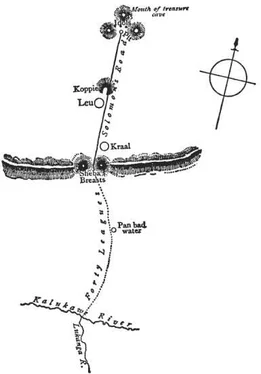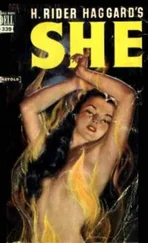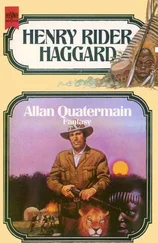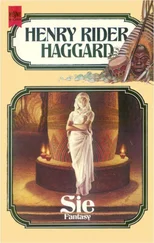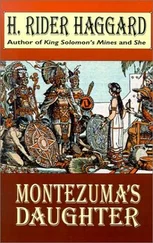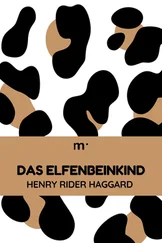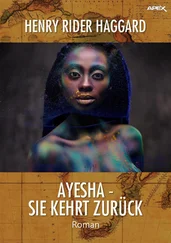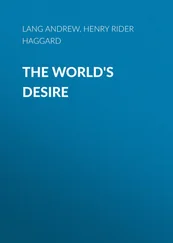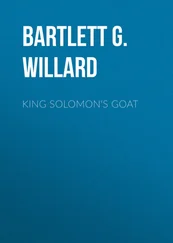Henry Haggard - King Solomon's Mines
Здесь есть возможность читать онлайн «Henry Haggard - King Solomon's Mines» — ознакомительный отрывок электронной книги совершенно бесплатно, а после прочтения отрывка купить полную версию. В некоторых случаях можно слушать аудио, скачать через торрент в формате fb2 и присутствует краткое содержание. Год выпуска: 1907, Издательство: Cassell and Company, Limited., Жанр: Путешествия и география, Природа и животные, на английском языке. Описание произведения, (предисловие) а так же отзывы посетителей доступны на портале библиотеки ЛибКат.
- Название:King Solomon's Mines
- Автор:
- Издательство:Cassell and Company, Limited.
- Жанр:
- Год:1907
- ISBN:нет данных
- Рейтинг книги:3 / 5. Голосов: 1
-
Избранное:Добавить в избранное
- Отзывы:
-
Ваша оценка:
- 60
- 1
- 2
- 3
- 4
- 5
King Solomon's Mines: краткое содержание, описание и аннотация
Предлагаем к чтению аннотацию, описание, краткое содержание или предисловие (зависит от того, что написал сам автор книги «King Solomon's Mines»). Если вы не нашли необходимую информацию о книге — напишите в комментариях, мы постараемся отыскать её.
King Solomon's Mines — читать онлайн ознакомительный отрывок
Ниже представлен текст книги, разбитый по страницам. Система сохранения места последней прочитанной страницы, позволяет с удобством читать онлайн бесплатно книгу «King Solomon's Mines», без необходимости каждый раз заново искать на чём Вы остановились. Поставьте закладку, и сможете в любой момент перейти на страницу, на которой закончили чтение.
Интервал:
Закладка:
Next came the question of provisioning and medicines, one which required the most careful consideration, for what we had to do was to avoid lumbering the wagon, and yet to take everything absolutely necessary. Fortunately, it turned out that Good is a bit of a doctor, having at some point in his previous career managed to pass through a course of medical and surgical instruction, which he has more or less kept up. He is not, of course, qualified, but he knows more about it than many a man who can write M.D. after his name, as we found out afterwards, and he had a splendid travelling medicine chest and a set of instruments. Whilst we were at Durban he cut off a Kafir's big toe in a way which it was a pleasure to see. But he was quite nonplussed when the Kafir, who had sat stolidly watching the operation, asked him to put on another, saying that a "white one" would do at a pinch.
There remained, when these questions were satisfactorily settled, two further important points for consideration, namely, that of arms and that of servants. As to the arms I cannot do better than put down a list of those which we finally decided on from among the ample store that Sir Henry had brought with him from England, and those which I owned. I copy it from my pocket-book, where I made the entry at the time.
"Three heavy breech-loading double-eight elephant guns, weighing about fifteen pounds each, to carry a charge of eleven drachms of black powder." Two of these were by a well-known London firm, most excellent makers, but I do not know by whom mine, which is not so highly finished, was made. I have used it on several trips, and shot a good many elephants with it, and it has always proved a most superior weapon, thoroughly to be relied on.
"Three double-500 Expresses, constructed to stand a charge of six drachms," sweet weapons, and admirable for medium-sized game, such as eland or sable antelope, or for men, especially in an open country and with the semi-hollow bullet.
"One double No. 12 central-fire Keeper's shot-gun, full choke both barrels." This gun proved of the greatest service to us afterwards in shooting game for the pot.
"Three Winchester repeating rifles (not carbines), spare guns.
"Three single-action Colt's revolvers, with the heavier, or American pattern of cartridge."
This was our total armament, and doubtless the reader will observe that the weapons of each class were of the same make and calibre, so that the cartridges were interchangeable, a very important point. I make no apology for detailing it at length, as every experienced hunter will know how vital a proper supply of guns and ammunition is to the success of an expedition.
Now as to the men who were to go with us. After much consultation we decided that their number should be limited to five, namely, a driver, a leader, and three servants.
The driver and leader I found without much difficulty, two Zulus, named respectively Goza and Tom; but to get the servants proved a more difficult matter. It was necessary that they should be thoroughly trustworthy and brave men, as in a business of this sort our lives might depend upon their conduct. At last I secured two, one a Hottentot named Ventvögel, or "windbird," and one a little Zulu named Khiva, who had the merit of speaking English perfectly. Ventvögel I had known before; he was one of the most perfect "spoorers," that is, game trackers, I ever had to do with, and tough as whipcord. He never seemed to tire. But he had one failing, so common with his race, drink. Put him within reach of a bottle of gin and you could not trust him. However, as we were going beyond the region of grog-shops this little weakness of his did not so much matter.
Having secured these two men I looked in vain for a third to suit my purpose, so we determined to start without one, trusting to luck to find a suitable man on our way up country. But, as it happened, on the evening before the day we had fixed for our departure the Zulu Khiva informed me that a Kafir was waiting to see me. Accordingly, when we had done dinner, for we were at table at the time, I told Khiva to bring him in. Presently a tall, handsome-looking man, somewhere about thirty years of age, and very light-coloured for a Zulu, entered, and lifting his knob-stick by way of salute, squatted himself down in the corner on his haunches, and sat silent. I did not take any notice of him for a while, for it is a great mistake to do so. If you rush into conversation at once, a Zulu is apt to think you a person of little dignity or consequence. I observed, however, that he was a "Keshla" or ringed man; that is, he wore on his head the black ring, made of a species of gum polished with fat and worked up in the hair, which is usually assumed by Zulus on attaining a certain age or dignity. Also it struck me that his face was familiar to me.
"Well," I said at last, "What is your name?"
"Umbopa," answered the man in a slow, deep voice.
"I have seen your face before."
"Yes; the Inkoosi, the chief, my father, saw my face at the place of the Little Hand"—that is, Isandhlwana—"on the day before the battle."
Then I remembered. I was one of Lord Chelmsford's guides in that unlucky Zulu War, and had the good fortune to leave the camp in charge of some wagons on the day before the battle. While I was waiting for the cattle to be inspanned I fell into conversation with this man, who held some small command among the native auxiliaries, and he had expressed to me his doubts as to the safety of the camp. At the time I told him to hold his tongue, and leave such matters to wiser heads; but afterwards I thought of his words.
"I remember," I said; "what is it you want?"
"It is this, 'Macumazahn.'" That is my Kafir name, and means the man who gets up in the middle of the night, or, in vulgar English, he who keeps his eyes open. "I hear that you go on a great expedition far into the North with the white chiefs from over the water. Is it a true word?"
"It is."
"I hear that you go even to the Lukanga River, a moon's journey beyond the Manica country. Is this so also, 'Macumazahn?'"
"Why do you ask whither we go? What is it to you?" I answered suspiciously, for the objects of our journey had been kept a dead secret.
"It is this, O white men, that if indeed you travel so far I would travel with you."
There was a certain assumption of dignity in the man's mode of speech, and especially in his use of the words "O white men," instead of "O Inkosis," or chiefs, which struck me.
"You forget yourself a little," I said. "Your words run out unawares. That is not the way to speak. What is your name, and where is your kraal? Tell us, that we may know with whom we have to deal."
"My name is Umbopa. I am of the Zulu people, yet not of them. The house of my tribe is in the far North; it was left behind when the Zulus came down here a 'thousand years ago,' long before Chaka reigned in Zululand. I have no kraal. I have wandered for many years. I came from the North as a child to Zululand. I was Cetewayo's man in the Nkomabakosi Regiment, serving there under the great Captain, Umslopogaasi of the Axe, [5] For the history of Umslopogaasi and his Axe, the reader is referred to the books called "Allan Quatermain" and "Nada the Lily."—Editor.
who taught my hands to fight. Afterwards I ran away from Zululand and came to Natal because I wanted to see the white man's ways. Next I fought against Cetewayo in the war. Since then I have been working in Natal. Now I am tired, and would go North again. Here is not my place. I want no money, but I am a brave man, and am worth my place and meat. I have spoken."
I was rather puzzled by this man and his way of speech. It was evident to me from his manner that in the main he was telling the truth, but somehow he seemed different from the ordinary run of Zulus, and I rather mistrusted his offer to come without pay. Being in a difficulty, I translated his words to Sir Henry and Good, and asked them their opinion.
Читать дальшеИнтервал:
Закладка:
Похожие книги на «King Solomon's Mines»
Представляем Вашему вниманию похожие книги на «King Solomon's Mines» списком для выбора. Мы отобрали схожую по названию и смыслу литературу в надежде предоставить читателям больше вариантов отыскать новые, интересные, ещё непрочитанные произведения.
Обсуждение, отзывы о книге «King Solomon's Mines» и просто собственные мнения читателей. Оставьте ваши комментарии, напишите, что Вы думаете о произведении, его смысле или главных героях. Укажите что конкретно понравилось, а что нет, и почему Вы так считаете.
